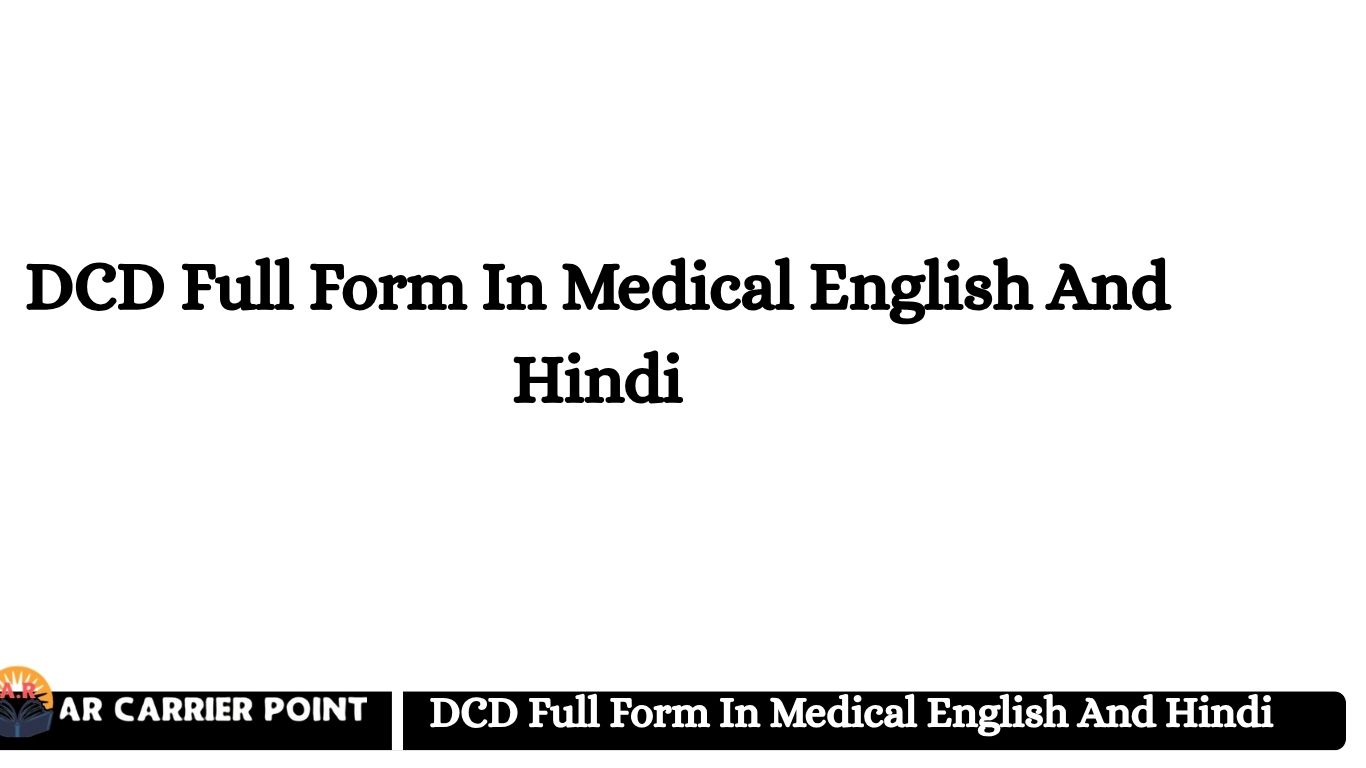DCD Full Form In Medical English
In medical terminology, DCD stands for Donation after Circulatory Death. It refers to the process of organ donation from a donor whose death is declared based on the irreversible cessation of circulatory and respiratory functions, rather than brain death. This type of donation has become an important source of organs for transplantation, helping to increase the availability of life-saving organs for patients in need.
DCD Full Form In Medical Hindi
मेडिकल भाषा में DCD का मतलब है Donation after Circulatory Death यानी “संचारी मृत्यु के बाद अंगदान”। इसका तात्पर्य उन दाताओं से अंगदान से है, जिनकी मृत्यु दिल और फेफड़ों की क्रियाशीलता (संचार और श्वास) बंद हो जाने के बाद घोषित की जाती है, न कि मस्तिष्क मृत्यु के आधार पर। यह अंगदान का एक महत्वपूर्ण तरीका है, जो अंग प्रत्यारोपण के लिए अंग उपलब्धता बढ़ाने में मदद करता है।
Read More: DPS Officer Full Form In English And Hindi
Frequently Asked Questions
What does DCD mean in medical terms?
DCD stands for Donation after Circulatory Death, where organs are donated after the donor’s heart and breathing have irreversibly stopped.
How is DCD different from brain death donation?
In brain death donation, the donor is declared dead based on irreversible loss of brain function, while in DCD, death is declared after the heart stops beating and circulation ceases.
Is organ donation after circulatory death safe for recipients?
Yes, organs donated after circulatory death are carefully evaluated and treated to ensure they are safe and viable for transplantation.
Which organs can be donated through DCD?
Kidneys, liver, lungs, and sometimes the heart can be donated through DCD, depending on the donor’s condition and the timing of organ retrieval.
Why is DCD important in organ transplantation?
DCD helps increase the number of available organs for transplantation, which saves more lives and reduces waiting times for patients.
Conclusion
Donation after Circulatory Death (DCD) is a vital practice in the field of organ transplantation. By allowing organs to be donated after the irreversible stopping of heart and lung functions, DCD expands the pool of available organs and helps save more lives. Understanding DCD is important for both medical professionals and the general public to support and promote organ donation effectively.

